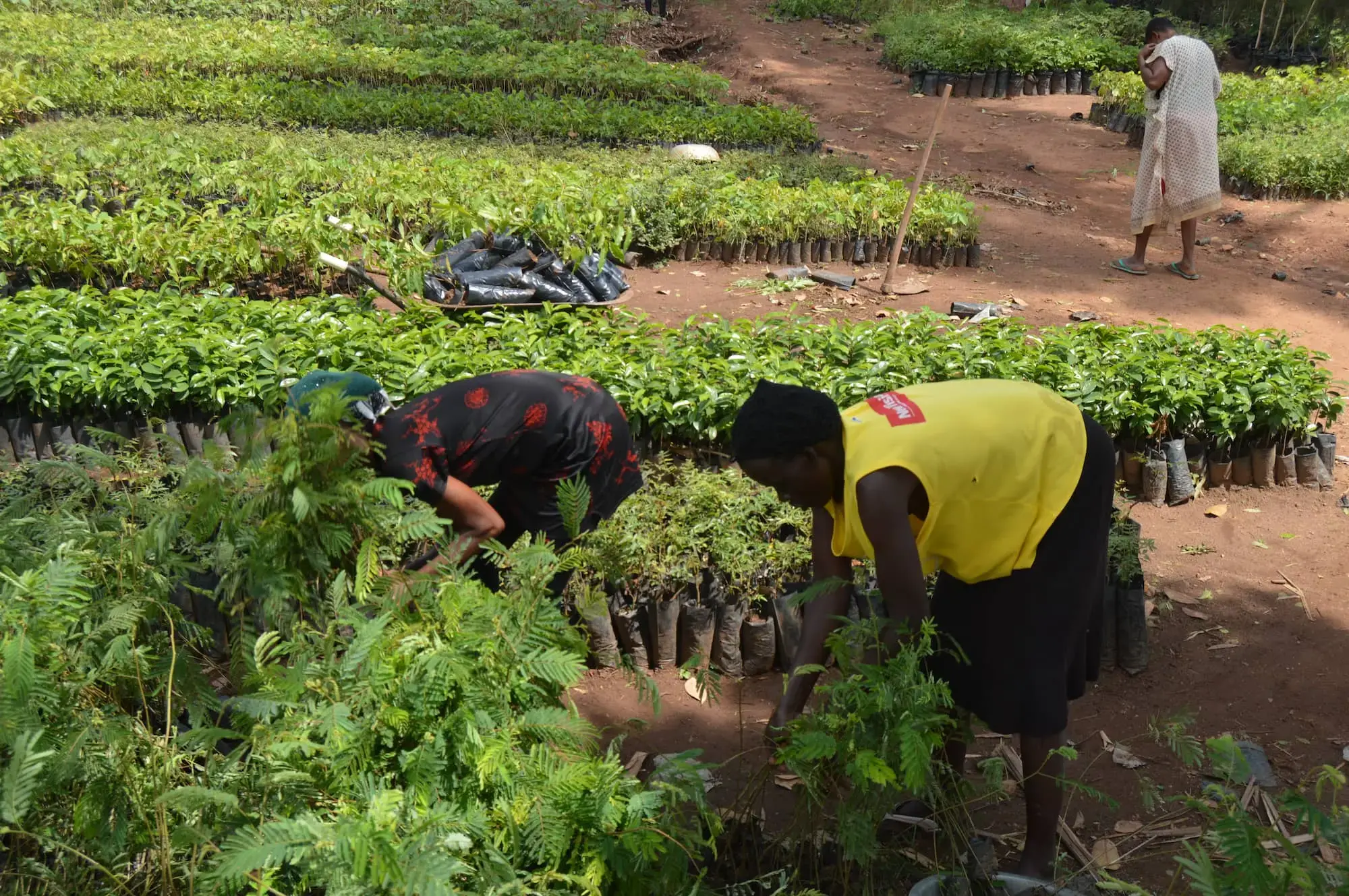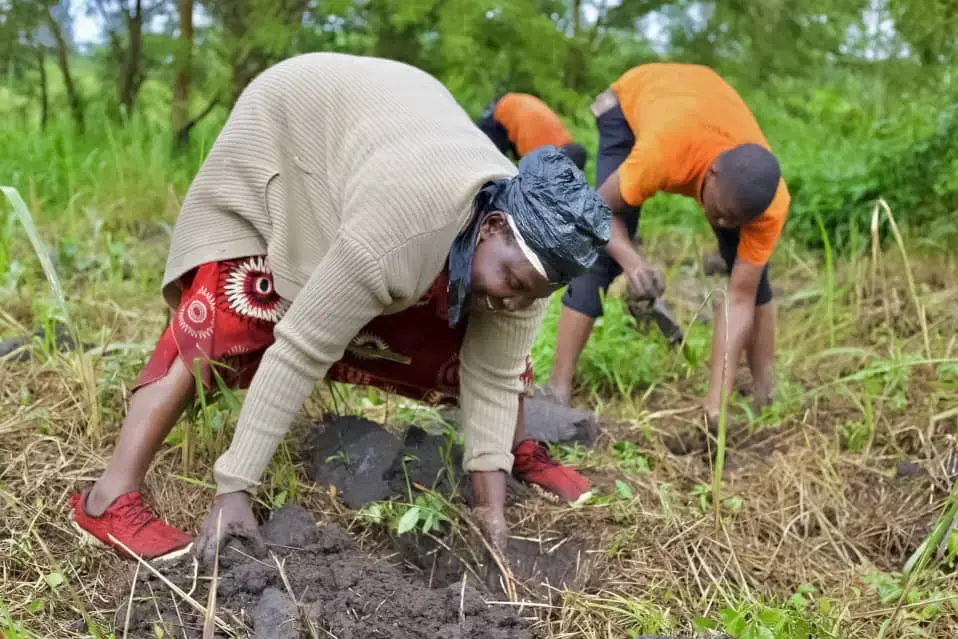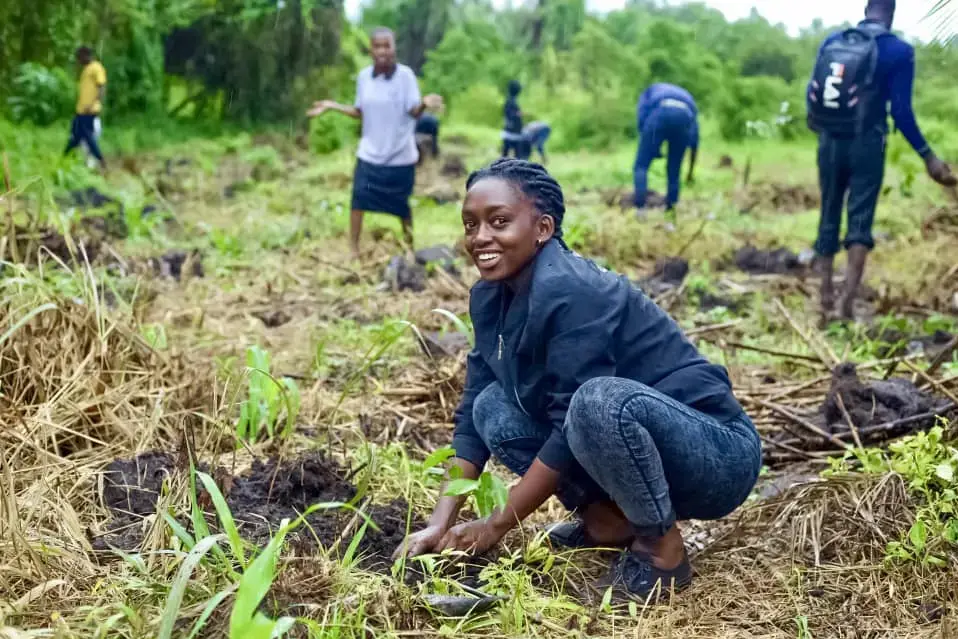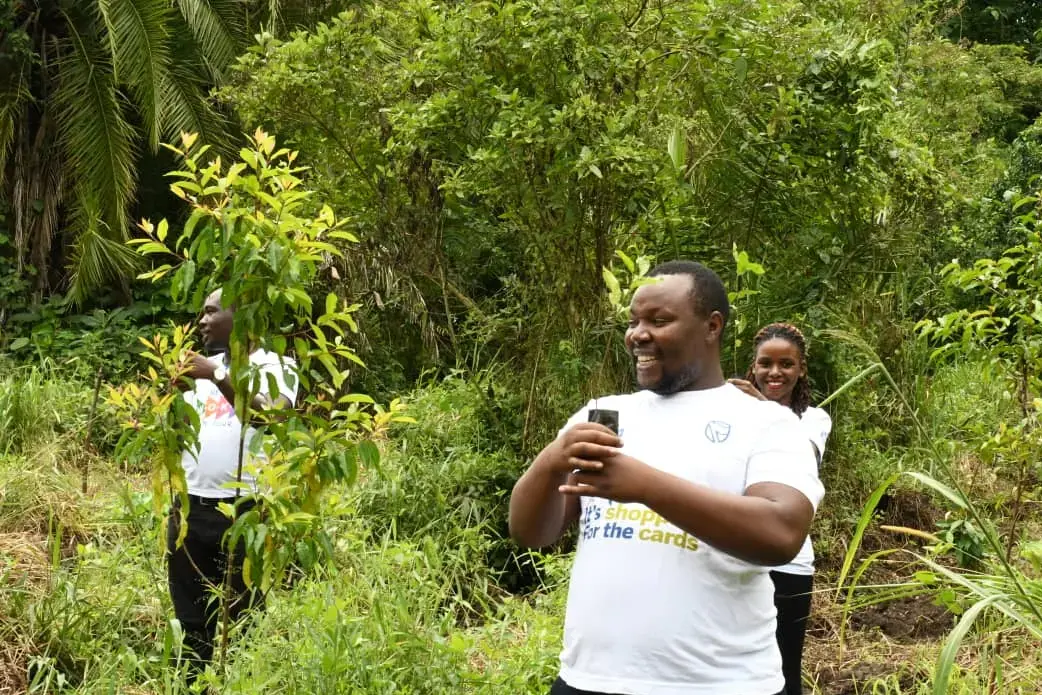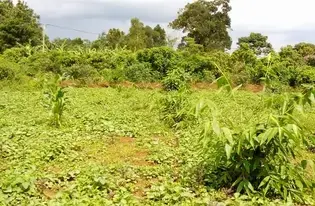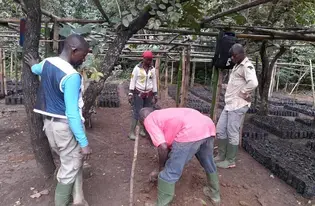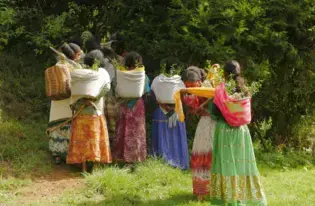Tree Adoption Uganda envisions a world where people and the environment coexist harmoniously, where everyone works to protect our planet. This vision is being realized by transforming how communities think about building a healthy environment through landscape restoration.
In Uganda, climate change is threatening economic growth and prosperity. Although the cost of adaptation is high, the cost of inaction could be up to 46 times greater according to an Economic Assessment of the Impacts of Climate Change from the Ministry of Water and Environment. If no action is taken in the next decade, annual costs could be in the range of US $3.2-5.9 billion
Addressing environmental issues has benefits that go beyond protecting Mother Nature. An example of this is the work done by Tree Adoption Uganda to restore the Manafwa Watershed in Eastern Uganda, which has suffered from floods, landslides, and soil degradation.
Tree Adoption Uganda is a youth-focused non-governmental organization founded in 2012. It aims to build communities where people and nature flourish by increasing the resilience of smallholder farmers to climate change and providing training on building and managing indigenous tree nurseries and tree farms. The organization also works to empower unemployed young people in rural areas of the country.
The organization collaborated with the Uganda Wildlife Authority, Mt Elgon Tree Growers' Association, National Forestry Authority, and local government officials, to restore the watershed's ecosystem services while also establishing resilient farming to boost food security.
Tree Adoption Uganda also engages young people through school environmental clubs. Students have the opportunity to explore their local environment, understand its resources, assets, and needs, as well as encourage their parents and communities to adopt environmentally friendly practices.
The organization is also educating the people of Bwaise Parish Three about proper waste management. This is done through hands-on learning and household waste collection with correct sorting. As a result, the community now lives in an environment where garbage is no longer a threat, but rather a source of income.
In early 2022, Tree Adoption received a grant from TerraFund for AFR100, an initiative of World Resources Institute, One Tree Planted, and Realize Impact that finances Africa's top restoration enterprises and projects. With this grant, the organization is growing 100,000 indigenous trees in five regions of Uganda.
In partnership with the Kasana-Luweero Catholic Diocese and private landowners, Tree Adoption Uganda has also planted 30,000 trees to restore Nandere Natural Forest Reserve, which was severely degraded due to expanding human settlements and deforestation.
The organization also planted 25,000 trees in eastern Uganda's Agu parish, Serero District, Kumi District, and Ngora District by partnering with smallholders farmers. By the end of 2022, 20,000 trees were planted in Nakaseke District, 5,000 in Bugema District and 20,000 in Bududa District.
According to Simon Okoth, project officer at Tree Adoption Uganda, this was made possible by their "inform and engage" approach.
"We plant in rural areas, and sometimes the people we work with don't understand issues related to climate change. So, we first raise awareness about the species of the trees, why planting the trees is important, how they can fight climate change, and how to grow a tree. The more knowledgeable communities are, the more they support the initiative,” Simon says.
For Simon, the project's impact on income generation extends beyond the farmers and individuals working in the nurseries to their families and relatives: “When trees are planted, they make a difference, not just for the one who planted them, but the community as a whole,” he says.
The organization recognizes the importance of engaging youth in the restoration process, and has involved them in tree mapping and tracking activities. This is achieved through the use of mobile-phone technology, which allows for easy tracking of the trees planted.
Angella Kansemiire, also a project officer at Tree Adoption Uganda, says that measures are taken to ensure trees are not only planted, but are maintained for years to come.
“We enter into agreements with smallholder farmers not to cut down trees for at least 15 years. We provide them with seedlings, training on how to grow trees, and offer upkeep support for planted seedlings. We make follow-up visits to assess the condition of the trees and determine the best way to assist tree growers,” Angella says.
In addition to restoring 200 hectares with the support of TerraFund for AFR100, Tree Adoption Uganda intends to work with communities to achieve restoration-based thinking and contribute to Uganda's goal of planting 40 million trees annually by collaborating with the Ministry of Water and Environment and other environmental organizations.
